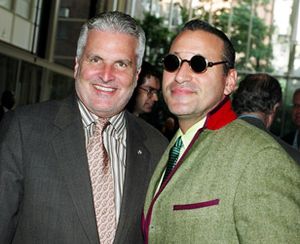|
presents THIS DAY IN GAY HISTORY based on: The White Crane Institute's 'Gay Wisdom', Gay Birthdays, Gay For Today, Famous GLBT, glbt-Gay Encylopedia, Today in Gay History, Wikipedia, and more …
Collected by Ted August 12 [{(o)}]|[{(o)}]|[{(o)}]|[{(o)}]| [{(o)}]|[{(o)}]1642 – France: Henri Coiffier de Ruzé, Marquis of Cinq Mars is beheaded for treason at Lyon. Cardinal Richelieu introduced King Louis XIII to the Marquis. Louis took him as his lover. The Marquis plotted against the king and was executed when the king discovered his plans.
1833 – Captain Henry Nichols hanged for "buggery." That was the actual British legal term for homosexual activity, and it was a capital offense until 1861, when the laws were finally relaxed to allow for life imprisonment. But that change came almost thirty years too late for Captain Henry Nichols. In 1833, the the London Courier printed the following account:"
Captain Henry Nicholas Nicholls, who was one of the unnatural gang to which the late Captain Beauclerk belonged, (and which latter gentleman put an end to his existence*), was convicted on the clearest evidence at Croydon, on Saturday last, of the capital offence of Sodomy; the prisoner was perfectly calm and unmoved throughout the trial, and even when sentence of death was passed upon him. In performing the duty of passing sentence of death upon the prisoner, Mr. Justice Park told him that it would be inconsistent with that duty if he held out the slightest hope that the law would not be allowed to take its severest course. At 9 o’clock in the morning the sentence was carried into effect. The culprit, who was fifty years of age, was a fine looking man, and had served in the Peninsular war. He was connected with a highly respectable family; but, since his apprehension not a single member of it visited him. * Apparently, Captain Beauclerk suicided on being caught with Nichols at "buggery" of one "Boy Lawrence." Poor buggers!
1859 – Katharine Lee Bates, the American songwriter and composer of "America the Beautiful" was born on this date (d.1929). She also popularized "Mrs. Santa Claus" through her poem "Goody Santa Claus on a Sleigh Ride" (1889). Bates was born in Falmouth, Massachusetts, the daughter of a Congregational pastor. She graduated from Wellesley College in 1880 and for many years was a professor of English literature at Wellesley. Bates lived at Wellesley with Katharine Coman, who was a history and political economy teacher and founder of the Wellesley College Economics department. The pair lived together for twenty-five years until Coman's death in 1915. In the years following Coman's death, Bates dedicated her book Yellow Clover: A Book of Remembrance to Katharine Coman. Almost all the poems contained in the book refer to the relationship between Bates and Coman. Such living arrangements as Bates and Coman shared were sometimes called "Boston marriages" or "Wellesley marriages". The 1999 play Boston Marriage by David Mamet depicts such a marriage as having an explicitly sexual component. In 2004, Massachusetts became the first state in the U.S. to allow legal same-sex marriage, which makes Boston the only major city in the U.S. where a "Boston marriage" can also be a legal marriage, if the couple wishes it to be.
1867 – Edith Hamilton, the educator, author and classicist was born on this date (d.1963) A classicist and educator before she became a writer on mythology, her most famous books are The Greek Way (1930) and Mythology (1942). Mythology remains in print after six decades and is still used as an introductory text to mythology in high schools and colleges; a mark of its status is that study guides to the book exist. Edith Hamilton was born in Dresden, Germany and grew up with her parents in Fort Wayne, Indiana. When she was seven, her father began to teach her Latin and added French, German, and Greek to her curriculum. Her education continued at Miss Porter's School in Farmington, Connecticut and Bryn Mawr College (M.A. 1894). In the following year, Edith and her sister Alice became the first female students accepted at the German universities of Leipzig and Munich. Upon her return to the United States in 1896, Edith Hamilton became the headmistress of Bryn Mawr School for Girls in Baltimore, Maryland, to which she devoted all her energies until her retirement in 1922. Upon retiring, she moved to New York City with her life partner Doris Fielding Reid, and wrote and published various articles about Greek drama.
1880 – Radclyffe Hall (d.1943), who lived her lesbianism openly and proudly, is best known for The Well of Loneliness, arguably the most important lesbian novel ever written. Born Marguerite Radclyffe Hall, John, as she preferred to be known except as an author, was the miserably unhappy child of a miserably unhappy and very brief marriage. Her mother Marie Diehl, an American widow, married the extravagant and roaming Radclyffe Radclyffe Hall, grandson of a wealthy and knighted Lancashire physician. Unsuited to the demands of domestic life, he left his new wife months before John was born. John was, thus, from infancy in the care of a mother desperate to redress her grievances and to mold her daughter into an asset to recoup her fortunes. With no formal schooling, John developed an interest in the piano, at which she would compose lyrics and music (later collected in five volumes of poetry), and in horses, riding, and motor cars, all the while pursuing attachments to girls and young women, none of which suited her socially ambitious mother. At age twenty-one, Hall inherited $10,000,000 (in 1993 dollars) from her paternal grandfather and left the stifling confines of her home. She began her lifelong travel to France and Italy and, at age twenty-eight, met Mabel Veronica Batten, "Ladye," with whom she lived, at first with Ladye's husband as well, until Ladye's death in 1915. Under Ladye's influence, Hall converted to Catholicism with a wholeheartedness that was to last all of her life and to color much of her life and writing. Ladye was instrumental in developing Hall's writing talents, through encouraging her first to publish her poetry and later to write fiction. Through Ladye, Hall also met Ladye's cousin, Una Lady Troubridge, the young wife of the aging Admiral Ernest Troubridge. Shortly before Ladye's death in 1915, Hall and Una became lovers, a lifelong commitment for both women. Hall spent the next thirteen years writing, publishing four novels, three of them highly successful in commercial and critical terms. She and Una socialized with many of the literary and lesbian notables in London and Paris, while living in Mayfair and vacationing for long periods in France and Italy. She also spent long serious hours studying psychic phenomena, joining and writing for the Society for Psychical Research, and devouring all she could find about the current scientific explorations of lesbianism, or inversion, as same-sex erotic desire was then called. In 1928, Hall published The Well of Loneliness, the novel for which she is best known. The next six years were less productive. She published only one novel and one collection of short stories. In 1934, Hall met Evguenia Souline, a thirty-year-old White Russian émigré without citizenship, who was to become her lover and in some senses her tormentor, as well as Una's. The relationship was stormy and ultimately destructive to Hall's health and to her work (she published only one more novel). In 1938, Hall and Una made plans to live permanently in Florence, Italy, only to have those plans disrupted by World War II. Beset by physical problems, Hal retired with Una to Devon, having obtained Souline's admission into England. The relationship with Souline deteriorated, while Hall's health was too poor to permit writing. She died in London of stomach cancer on October 7, 1943, and is buried with Ladye in Highgate Cemetery, London. Hall lived her lesbianism openly and proudly, convinced that her inversion was "congenital," to use the categories of her mentor Havelock Ellis. In her forties, she began to dress in a style appropriate to her self-identification with "the third sex." She was instantly recognizable by her close-cropped hair, tailored jackets, flamboyant shirts and blouses, wide-brimmed hats, and often stocks and ties.
She and Troubridge were important figures in the lesbian circles of London, Rye, and Paris. But her importance to lesbian literature lies primarily in her most famous book The Well of Loneliness, arguably the most important lesbian novel of the twentieth century. Ironically, Hall never set out to be a consciously identified lesbian writer. All but four of her published works have no lesbian content, however disguised and covert, but The Well is explicitly lesbian. The public outcry came swiftly. Hall's effectiveness in engaging the reader's sympathy and understanding alarmed the conservative moralists who succeeded in bringing the publisher before the Home Office in a highly publicized obscenity trial. Hall's own defense of the book's morality cited Ellis and Magnus Hirschfeld, another noted sexologist, claiming that inverts are a part of Nature, made that way by God, and then punished by a cruel and uncomprehending world. Their suffering cries out for redress and an end to persecution. This was a bold and powerful message in the literary world of the 1920s. Nevertheless, the book was banned, though printed in France and thus widely available. The attempt to ban it in the United States having failed, American readers were able to purchase it freely. From these sources alone, The Well sold over 10,000 copies in its first year. Over the years, Hall claimed to have received more than 10,000 letters about the novel, many from grateful lesbians, but also many from nonlesbian supporters. By 1943, at Hall's death, the book had been translated into fourteen languages and was selling at over 100,000 copies year after year. It has never gone out of print. Despite the shifting critical reactions over three-quarters of a century, and despite Hall's "essentialist" turn-of-the-twentieth-century views on sexology, The Well of Loneliness remains the one book most likely to have been read by lesbians and by those interested in a portrayal of lesbianism. Indeed it is one of the books most widely identified with lesbian literature the world over.
1882 – André Germain, aka Loïs Cendré, (d.1971) was a French journalist, essayist, poet and writer. He became known, among other things, through the novel Mephisto by Klaus Mann, in which he appears as Pierre Larue. Germain was the son of a banker who had made considerable fortunes as the founder of the Crédit Lyonnais banking house. As heir to the family fortune, Germain owned several million francs as well as a famous villa above Florence, to which in later years he mainly invited German artists and intellectuals. At a young age Germain married a daughter of Alphonse Daudet. The marriage, which is said to have been "gruesome", was annulled after fourteen months in 1908. Germain made the various aspects of art and culture, but above all literature, the focus of his interests. Even before the First World War, he was a well-known personality on the cultural stage of his home country and later of Germany - for which he developed a special weakness - as well as the rest of Europe as a dandy and author of poems and texts. After the First World War, André Germain was co-editor of the magazine Revue Européenne under Edmond Jaloux . At the time he was living in a splendid Hôtel in Paris behind the City Hall, with a view of the Notre Dame Cathedral. From the 1920s, Germain, who spoke excellent German, often stayed for long periods in Berlin and other larger German cities. In the early 1930s he harbored sympathies for the National Socialist ideology and the Nazi state. So he wrote a book "Hitler or Moscow?", in which he indicated that, given the choice, he was more in favor of Hitler. However, during the Vichy regime in France, Germain kept a clear distance from the Germans. In Germany in the 1920s and 1930s, Germain met numerous important exponents of the cultural life of the time, in particular, the siblings Klaus Mann and Erika Mann. After a long period of friendship, Germain and Klaus Mann fell out as a result of personal insults: Germain called Mann, who had tried to borrow money from him, "Narcissus of the swamp". Mann retaliated by mocking Germain as "the latest craze for Crédit Lyonnais". Because of Germain's closeness to and sympathy for the National Socialists, Mann took the opportunity to use Germain as a model for one of the rather negatively drawn figures in Mephisto, which was a parable of the panorama of theater and cultural life in the early Nazi state. Specifically, Germain appears there in poorly-disguised form as a French diplomat and saloon lion who seeks to be close to the National Socialists and ingratiate himself with them. Germain has been described as "a man who is slender in appearance and not very steadfast". Georg Zivier called him "immensely homosexual" and "in love with the entire Hitler Youth".
1892 – Alfred Lunt (d.1977) and Lynn Fontanne delighted Broadway audiences with their masterful stagecraft. They became known as the first family of the American theater, but theirs was a lavender marriage (that is, a marriage of a gay man and a lesbian designed to create and sustain the illusion of heterosexuality), and their presentation of themselves as the ideal American couple may have been their most skillful performance. The public was enchanted by what seemed to be a storybook tale – romance, Broadway stardom, and a marriage of over fifty years for a farm boy from Wisconsin and a delicate English beauty. Alfred David Lunt, Jr. did not actually grow up on a farm. He was born in Milwaukee on August 12, 1892. His father was a lumberman and land agent who died when the younger Lunt was only two. Lunt was educated at the Carroll College Academy in Waukesha, Wisconsin. Upon graduation, he enrolled at Carroll College. He considered studying set design or architecture but soon realized that theater performance was his true calling. While at the Carroll Academy, Lunt became friends with Ray and Andrew Weaver, fellow students. The three wrote a play, The Greater Love, which they hoped to have staged at the college, but the work was never produced. Lunt and Ray Weaver remained close even after their students days. The exact nature of their relationship is unknown, but in letters Lunt called Weaver "honey" and "my hero of delight." He made his professional debut in their production of A. Baldwin Stone and Frederic Ranken's The Gingerbread Man. Lunt toured for a few years in theater and vaudeville. Along the way his talent caught the attention of George C. Tyler, and Lunt subsequently became a member of his company. It was in a 1919 Tyler production of Richard Washburn Child's Made of Money that Lunt first worked with Fontanne. American stage star Laurette Taylor reputedly "stage-managed" Fontanne's romance with Lunt, but then became jealous of their relationship. The friendship did not survive the marriage; finding Taylor's vindictive behavior toward Fontanne intolerable, the couple soon dropped her from their circle. Following their appearance in Made of Money, Lunt and Fontanne worked together in John T. McIntyre's A Young Man's Fancy in 1919. When that show closed, each went on tour in other plays. Lunt's performance in the title role of Booth Tarkington's Clarence and Fontanne's in George S. Kaufman and Marc Connelly's Dulcy established the two of them as stars. After their marriage in 1922 they continued working in separate shows for a time. Both were dissatisfied with the light comedies in which they were appearing, and yearned to do more serious, sophisticated theater. Accordingly, in 1924 they joined the Theater Guild, which produced plays of greater literary merit. In their years with the Guild, they appeared in such works as George Bernard Shaw's Arms and the Man (1925), Pygmalion (1926), and The Doctor's Dilemma (1927), Franz Werfel's The Goat Song (1926), and Robert Sherwood's Reunion in Vienna (1931-32 in New York, 1934 in London). The favorable public and critical reception of their first Theater Guild production, Ferenc Molnár's The Guardsman (1924), established the Lunts as an acting team. From that time on, they always performed on stage together except for once, in 1928, when Fontanne, at Lunt's urging, appeared without him in Eugene O'Neill's Strange Interlude. The Lunts' project of performing in more sophisticated and sexually-daring plays came at a time when such material was gaining in popularity with audiences. The era of light-hearted musical shows and the extravaganza of The Ziegfield Follies was waning as dramatists such as O'Neill offered more controversial fare and Mae West challenged notions about propriety with her plays Sex and The Drag. New York experienced what George Chauncey has called the "Pansy Craze," a fascination with the gay communities of Greenwich Village, the Upper West Side, and Harlem. Attending drag balls was a fashionable entertainment for straight couples. There were strict limits to the tolerance, however. Throughout the period, the police raided businesses catering to a gay clientele. Patrons were subject to arrest and imprisonment, and, even if not convicted, could find their careers ruined. Since theater folk tended to be more accepting than the general public, many gay men and lesbians chose to live in neighborhoods of "theatrical boarding houses." Rents were reasonable, and residents tended not to complain about neighbors who might be considered unconventional elsewhere. In the early years of their marriage Lunt and Fontanne lived in a theatrical boarding house. To what extent they participated in the life of the community is unclear, but they certainly would have been aware of it. Over the years, their social circle included gay playwright and actor Noël Coward, gay photographer Carl Van Vechten , and the sexually ambiguous critic Alexander Woollcott. There were rumors about the sexual orientation of Lunt and Fontanne in the theater world. In 1933 an item entitled "Stage Stars in Queer Action" in the gossipy tabloid Broadway Brevities did not name the Lunts but clearly seemed to target them, saying "This little fact concerns two of the greatest stars of the legitimate theatre and who are supposed to be happily married. The pair, however, are as queer as a couple of bugs. He is a pansy who is conducting an affair with his male secretary, while she is a lesbian and has several girls acting as her lovers. Cute, eh?" The rumors never became fodder for the mainstream press, though. Marriage seems to have shielded their reputations. In the late 1930s, as New York prepared to host the 1939 World's Fair, public authorities began a campaign to eradicate all visible signs of the city's gay community. The State Liquor Authority targeted gay bars, sending covert agents to look for "disorderly" conduct there. Police raided gay enterprises and arrested patrons, many of whom were sentenced to jail. Newspapers published the names of those who had been detained. In this climate of homophobia, Lunt and Fontanne began taking less controversial roles, although, as they were no longer young, fewer may have been available to them in any event. In 1940 they appeared in Robert Sherwood's There Shall Be No Night as the middle-aged parents of Montgomery Clift. The Lunts were not known for taking young actors under their wing, but they did so with Clift, inviting him to their home, where they coached him in acting. Lunt and Fontanne seem to have had a genuine affection for the young Clift (although they broke with him later). They gave him a photograph of themselves, inscribed "From your real mother and father." Clearly, they were engaged in a project of redefining the family. At the time, Clift was in a gay relationship, and Lunt worried that Clift's career might suffer if that fact became known. The Lunts' "parental" advice to Clift was to marry a young actress, Phyllis Thaxter, and to establish themselves as an acting team, as Lunt and Fontanne had done. In the early 1940s the Lunts began an aggressive campaign to promote themselves as the picture of the ideal couple--quite literally. They granted interviews to magazines with a domestic slant such as Ladies' Home Journal, and had themselves photographed in homely pursuits at their farm--where they had a lavish house called Ten Chimneys--in Genesee Depot, Wisconsin. In several variations of a posed photograph, the two are seen carrying a basket of vegetables, each of them holding one of the handles. Lunt and Fontanne were able to control the access of journalists and photographers to their home, and thus to control their image. On July 4, 1964, Lunt and Fontanne were given Presidential Medals of Freedom. Six years later, both received special Tony Awards for lifetime contributions to the theater. Lunt and Fontanne retired in 1972. Lunt died on August 3, 1977, and Fontanne on July 30, 1983. The inscription on their tombstone states that they "were universally regarded as the greatest acting team in the history of the English speaking theater" and that "[they] were married for 55 years and were inseparable both on and off the stage."
1907 – The American blues singer Gladys Bentley was born on this date (d.1960). She was a fixture of the Harlem Renaissance. She appeared at Harry Hansberry's "Clam House" on 133rd Street, one of New York City's most notorious Gay speakeasies, in the 1920s, and headlined in the early thirties at Harlem's Ubangi Club, where she was backed up by a chorus line of drag queens. She was a 250 pound woman dressed in men's clothes who played a mean piano and sang her own raunchy lyrics to popular tunes of the day in a deep, growling voice while flirting outrageously with women in the audience. She specialized in improvising indecent lyrics to the tunes of popular melodies of the day; one of her songs combined "Sweet Georgia Brown" and "Alice Blue Gown" into a bawdy ode to anal intercourse. The singer appeared at the Cotton Club and headlined at The Clam House for several years, where she performed in a white tuxedo and top hat. She cultivated her image as a "bull dagger," openly flaunting her Lesbianism not only in performance but also in public. In a much publicized ceremony, she even married her white Lesbian lover. She certainly made an indelible impression on a number of writers and memoirists. In 1945 Langston Hughes, in his autobiography The Big Sea, remembered her as "an amazing exhibition of musical energy--a large, dark, masculine lady, whose feet pounded the floor while her fingers pounded the keyboard--a perfect piece of African sculpture, animated by her own rhythm." On the decline of the Harlem speakeasies with the repeal of Prohibition, she relocated to southern California, where she was billed as "America's Greatest Sepia Piano Player", and the "Brown Bomber of Sophisticated Songs". She was frequently harassed for wearing men's clothing. Bentley was openly Lesbian during her early career, but during the McCarthy Era, she started wearing dresses, married a man (who denied that they ever married), and studied to be a minister, claiming to have been "cured" by taking female hormones. She died, aged 52, from pneumonia in 1960.
Irving Bieber was born in New York City and graduated from New York University Medical College in 1930. Bieber went on to work at Yale Medical College, New York University, and starting in 1953 at the New York Medical College, where he taught a course in psychoanalysis. Bieber was, along with Lionel Ovesey and Charles Socarides, one of the most influential American psychoanalysts who attempted to convert gay men to heterosexuality. Bieber's 1962 book Homosexuality: A Psychoanalytic Study of Male Homosexuals was a counter reaction to the 1948 Kinsey Report on male sexual behavior. It remained the leading study on homosexuality until homosexuality was removed from DSM-III in 1973. In 1970, Bieber attended a meeting of the American Psychiatric Association in San Francisco that was protested by gay activists. According to Socarides, Bieber, who felt he had "been working all these years to help these people", took this very hard. In 1973, the same year the American Psychiatric Association removed homosexuality from its list of mental disorders, Bieber told an interviewer that "a homosexual is a person whose heterosexual function is crippled, like the legs of a polio victim." When Alan P. Bell, Martin S. Weinberg, and Sue Kiefer Hammersmith's study Sexual Preference was published in 1981, Bieber declared that its findings were "totally disparate" with his experience from psychiatric consultation. Bieber arranged a partial translation into English of a paper by the Hungarian pediatrician S. Lindner, who had reported a systematic study of sucking. Sigmund Freud had used Lindner's observation that sensual sucking seems to absorb the attention completely and leads to either sleep or an orgasm-like response to develop his theory of infantile sexuality. Bieber pointed out what he saw as inaccuracies in Freud's use of this paper. Bieber died in Manhattan in 1991.
1930 – Bramwell Franklin (d.1995) was a beloved figure in Detroit's gay and lesbian community for over 45 years. From the late 1940s through the 1970s he performed under the stage name Chichi at bars throughout the Metro area. Bom in Detroit, Franklin grew up in Ferdale and received a degree from Wayne State University, where he also did graduate work on the sociology of religion. While attending college part time, he worked as a typist, eventually running his own secretarial service for over twenty years. It was as Chichi, however, that he was most celebrated. In the days before gay liberation, when gay life was centered almost solely in bars, he performed a specialty act which included jokes, comic vocals, and falsetto singing. "One might say that I impersonated homosexuals of a very swishy variety, but I'm not sure it was really an act," he said in an oral history interview in 1993. In an interview, he described performing at the old Golden Slipper: "I used to SCREAM at the customers, especially if they'd never been there before. For instance, if a big motorcyclist with a studded bracelet came in, I would stop the show and draw everyone's attention to this person, and how masculine and handsome he was in his leather outfit. . . But isn't it a shame that his wrist is so limp that he has to wear a therapeutic device." Chichi first appeared, while Bramwell was still in high school, with a popular drag revue at Uncle Tom's Plantation, a black and tan on Eight Mile near Livernois. He soon moved on to LaRosa's on Farmer Street, the only other bar that world accept his fake l.D. After he turned twenty-one he performed for gays and "tourists" at the Rio Grande, which later became the Ten Eleven, and was the featured entertainment for the opening of the Diplomat. During the 1950s and 1960s, when police harassment was routine, he often alerted the clientele to the presence of undercover vice. Franklin's last engagement as Chichi was at the Town Pump in the late 1970s. When asked what he would say to younger generations, Franklin responded, "I think it's very important if you are gay to recognize it and not particularly try to hide it." Known to people in recent years as Ernie, Franklin operated the Little-Read Book Store, which also served as a community center of sorts, until shortly before his death from cancer in 1995.
1945 – Poet J. D. McClatchy, Jr. (d.2018), was a master of traditional poetic forms, most notably the sonnet and sonnet sequence, and ranks as a significant voice in contemporary American letters. He was also a prolific anthologist, the editor of the prestigious Yale Review, and a noted librettist. McClatchy has written openly about gay desire and love, among other topics, combining the intelligence of W.H. Auden and the linguistic virtuosity of James Merrill with a unique ability to mine his memories and experiences to create emotional honesty. McClatchy has also made some cogent remarks on gay poetry and the slippery notion of a "gay sensibility" in literature. As editor of the anthology Love Speaks Its Name: Gay and Lesbian Love Poems (2001), he states: "Over the centuries, the homosexual temperament has seemed especially suited to engaging the themes of bafflement, secret joys, private perspectives, forbidden paradises, hypocritical conventions, and ecstatic occasions. In fact, it would be fair to claim that our gay and lesbian poets are the wisest inquirers after love." McClatchy is the author of five original volumes of poetry. He is also author of two prose collections, Twenty Questions (Posed by Poems) (1998), a book of memoirs and critical essays, and White Paper: On Contemporary American Poetry (1989), another collection of essays that offers close readings of poets such as Elizabeth Bishop, Robert Lowell, Anthony Hecht, and Sylvia Plath.Born Joseph Donald McClatchy in 1945 in Bryn Mawr, Pennsylvania, the son of observant Catholics, McClatchy was raised in a wealthy suburb of Philadelphia and attended all-male Jesuit schools, where he received his introduction to classical literature. McClatchy's sequence of three sonnets "My Old Idols" (Ten Commandments, 1998) remembers his childhood and teenage years. In one section, the speaker recalls a favorite Latin teacher, Father Moan, who made him "quiver" when "He'd slap the pointer against his thigh." In another, he looks back at his ten-year-old self and an initiation into sex with his friend's older brother in an ice rink's restroom. He writes, "I fumbled with small talk, pretending to be shy. / Looking past me, he slowly unzipped his fly." Another section recalls McClatchy's teenage infatuation with opera legend Maria Callas. McClatchy's family was not literary, but it was musical. Not surprisingly, he has written several libretti for leading composers, including William Schuman. McClatchy more fully realized a new focus in life in 1975 when he began living with fellow gay poet Alfred Corn, who he claims helped him clarify his sense of "vocation" as a poet. The romantic relationship of the two poets lasted thirteen years, during which time McClatchy showed Corn everything he wrote. McClatchy, in a Lambda Book Report interview, states, "My sexuality itself is rarely the subject of my poems. Its consequences are." McClatchy adds, "The nature and formation of desires, the pleasures and anxieties of being gay--sure, these figure in my work. But I'm less interested in homosexuality as a subject than as a sensibility. Nowhere visible, but everywhere apparent." McClatchy's other literary friendships over the years have included Robert Penn Warren, Anne Sexton, Robert Lowell, John Hollander, and Richard Howard, as well as Corn. McClatchy's poetry has earned him praise as a writer of probing intellect and emotional acuity. In addition, he is a poet with deep insight into the nature of desire, especially the complexities of gay male desire. He was in a longterm relationship with graphic designer, novelist, Batman expert, and vocalist Chip Kidd, nineteen years his junior. They were married in 2013.
1951 – James T. Sears is an American historian, educator, and author of many works on sexuality, identity, and sex education, and the history of homosexuality and the gay rights movement in the United States. Sears is a longtime openly gay man, now living in Nicaragua. James T. Sears was born in Tipton, Indiana, to Virgil M. Sears, an optometrist) and Kathy Sears (nee Cooper), a dog groomer. Sears began his career as an assistant professor at the University of South Carolina in 1984. He became an associate professor in 1989 and a full professor three years later. He was a visiting professor at Trinity University, the University of Southern California, the College of Charleston, and Harvard University. Additionally, he served as a consultant to the J Paul Getty Foundation, the South Carolina Policy Center, and the Brazilian government and was a Fulbright Southeast Asia Scholar and a Visiting Research Fellow at the University of Queensland. Sears is an author of many works on sexuality, identity, and sex education, and the history of homosexuality and the gay rights movement in the United States. He also edited three journals: Empathy (1989-1993), Teaching Education (1989-1998), and the Journal of LGBT Youth (2007-present) and served a guest editor for several other academic journals as well as a member of several journal editorial boards. Sears is a well-known gay rights activist, whose prolific work towards the establishment of equality for gay and straight people, made him a respected specialist in this area. His books received high praise from critics and several of his books became bestsellers.
1968 – August 12-17: The North American Conference of Homophile Organizations, nicknamed NACHO, made up of delegates from 26 groups, convenes in Chicago to discuss goals and strategy. Although delegates fail to form a unified national organization, they pass a five-point “Homosexual Bill of Rights” and resolve to make “Gay Is Good” the slogan of the movement.
1987 – Mike Verschuur is a Dutch racing driver. He won the Eurocup Mégane Trophy series in 2009 and the Renault Clio Cup Netherlands in 2006. He has also competed in other such series as Porsche Supercup. He is openly gay Verschuur was one of 27 sports personalities to come out publicly during the first half of 2011. Others in that group included Dutch gymnast Jeffrey Wammes and Swedish national footballer Anton Hysen. He has stated: "Many fellow drivers – not mentioning any names – have told me they are gay, too. But they dare not say so in public, which is a real pity, because there is nothing to fear. On the contrary, it has only made me stronger. It's made me a better driver."
1988 – On this date the painter and graffiti artist Jean-michel Basquiat died of an overdose (b. 1960). In 1996 his story was made into a movie under the title Basquiat, with Jeffrey Wright as Basquiat and David Bowie as Andy Warhol.
2004 – On this day the Governor of New Jersey, Jim McGreevey, publicly revealed his homosexuality thus becoming the first and, to date, only openly Gay state governor in United States history.
2007 – The American singer, actor, game show host and talk show host Merv Griffin died on this date (b. 1925). His tombstone reads: "I will NOT be right back after this message."
2009 – On this date, in a reminder that elections do matter, President Barack Obama posthumously awarded the Presidential Medal of Freedom to Gay Civil Rights pioneer Harvey Milk. Also honored at these ceremonies was the tennis legend Billie Jean King.
|
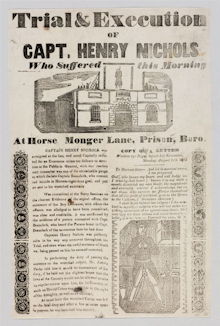
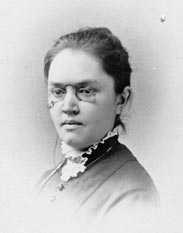
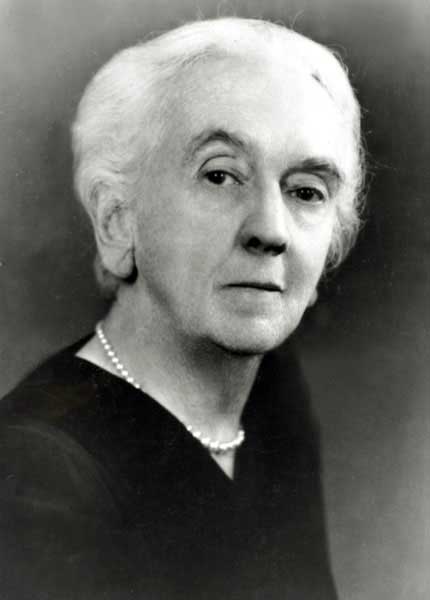
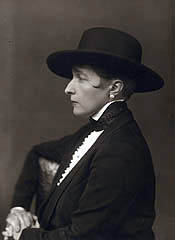
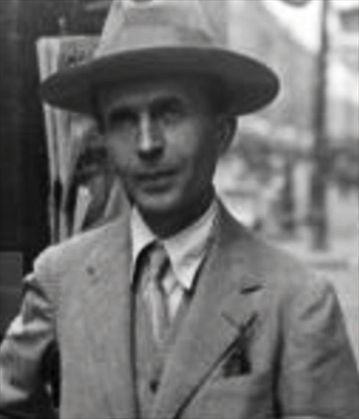
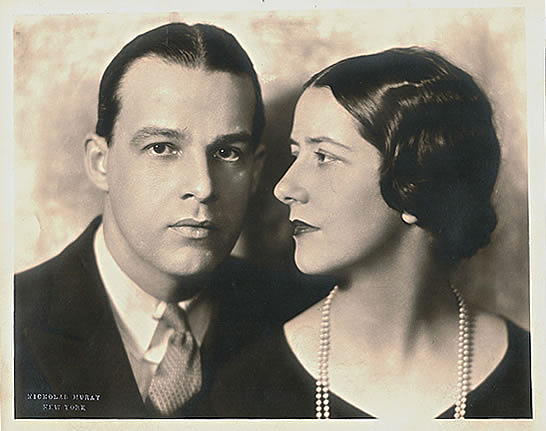


 Added 2023
Added 2023